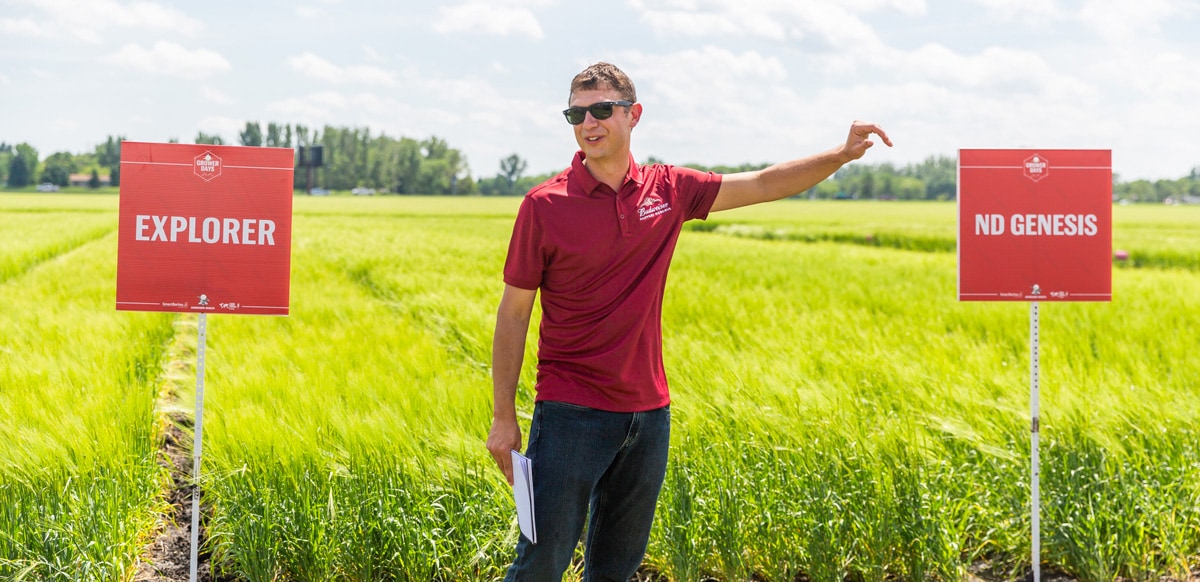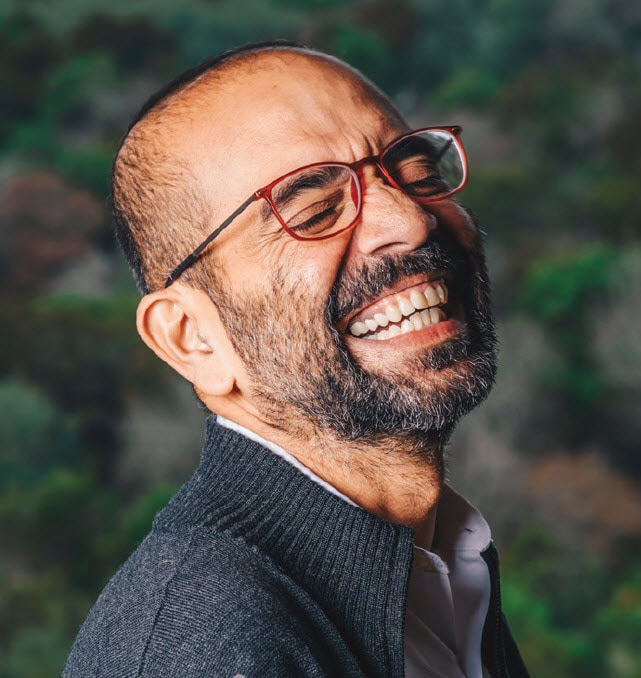Smart Agriculture – 100% of our direct farmers are skilled, connected and financially empowered
In 2019 we continued to support our farmers in our approach to agricultural development, working with over 20,000 farmers in 13 countries to support the growth of our six priority crops (barley, cassava, hops, maize, rice, sorghum). We have developed a framework under the pillars of “skilled, connected and financially empowered” to ensure that farmers have access to good varieties and technical training (skilled), improved insights and information (connected), and the ability to invest in and grow their business for the long term (financially empowered). We are making progress towards our goal as of 2019, 50% of our direct farmers met our criteria for skilled; 45% for connected and 35% for financially empowered.

are supporting
the growth of our
priority crops
The 2019 crop year proved to be challenging in many growing regions across the globe, with weather events threatening both quality and yield. Whether it was rain at harvest or drought during critical growth periods, climate change continues to increase the intensity and frequency of these potentially devastating weather events. Increasing farmer resilience and reducing production volatility through improved breeding and crop management practices will continue to be a focus for our Research and Agronomy teams. We are working diligently to ensure our frameworks of “skilled, connected, and financially empowered” appropriately supports farmers to adopt the practices and tools they need to address the challenges they face in their local environments.
Partnering to ensure the long-term productivity of our largest sourcing region
Over one fourth of our total barley needs are sourced from Argentina, so it is critical that we continue to develop new, improved varieties for the region as well as work with farmers to enable adoption of sustainable, productive practices. As with many of our agricultural development programs, partnerships play a key role. In 2019, we worked with Ackermann to release two new higher-quality, higher-yielding varieties – Yanara and Alhue, which were named with the help of our Marketing team drawing inspiration from the local Mapuche language. We also collaborated with crop nutrition experts Yara to develop crop nutrition protocols that help farmers grow to meet the high-quality standards for Budweiser while at the same time reducing their costs and limiting environmental impact.
Building our analytics capabilities in the field
SmartBarley has been our primary agricultural development program since 2013. Currently live in 12 countries across five continents, SmartBarley utilizes data and technology that enables our agronomists to help growers improve productivity. In 2019 we enhanced this innovation by partnering with Sentera to pair field-level data from SmartBarley with weather and imagery analytics. This data will help our agronomists support farmers, leading to the production of quality crops and helping to combat the impact of climate change.

Expanding the capabilities of a successful tool
After an initial pilot in Zambia with positive results in 2018, BanQu joined our 100+ Accelerator and we worked together to expand the platform to India and Uganda, connecting more farmers across our cassava and barley supply chains. BanQu employs an SMS-based service that uses blockchain technology to record purchasing and sales data of our value chain offering farmers a digital financial identity. In addition to the geographic expansion, we increased our capabilities with the service to send digital payments, reducing cash transactions and thereby lowering the risk for our farmers.
Upskilling our farmers
To bridge the gap between small research trial plots and large-scale industrial farms, we are utilizing model farms to test new ideas, validate them at scale and then share those learnings broadly with growers. Our first model farm, the Caledon Research and Development Centre in South Africa, is focusing on long term priorities including rotations, tillage practices, nitrogen trials, farm profitability and sustainable agriculture practices. We will continue to develop model farms across other zones and regions, with the intention of creating more skilled farmers across our supply chain.









































